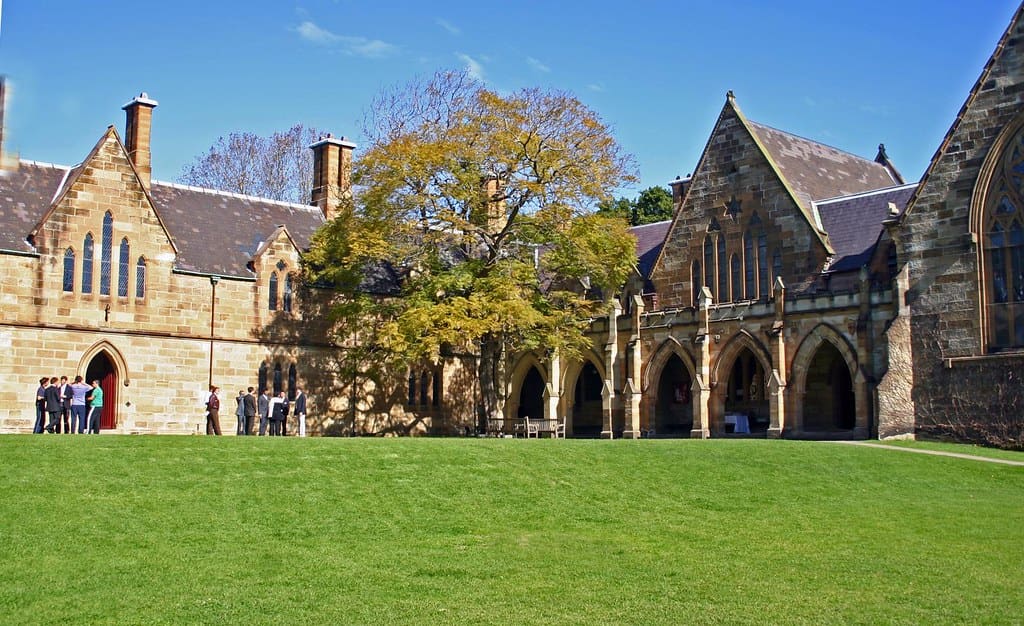CW: This article contains mentions of hazing and sexual assault.
St. Paul’s, arguably the second most controversial residential College at USyd behind St. Andrews, became co-ed this year. This development has been used to propagandise through the media about a culture shift, including what is essentially a puff piece published by the Herald titled “From a ‘bone room’ to yoga: St Paul’s College journey on consent.” This is much needed for the College’s reputation, as even the most infamous defender of the College system, former Vice Chancellor Michael Spence, claimed in 2017 that the “deep contempt for women” at St. Paul’s was a “profound issue in the life of the College, going to its very licence to operate.”
The Herald’s article repeats a claim that has become significant in the recent arguments of all USyd Colleges — that there was an alleged culture shift in the Colleges in 2017 to 2018 as a result of the Broderick Review, and sexual violence and harassment are now a significantly lessened issue. It repeats the boorish claim that St Paul’s went co-ed to promote diversity; to this claim we should note that before it began accepting women, it was one of only three university halls in the entire country that only accepted male occupants. Furthermore, the St Paul’s College Union (which is hilariously a thing that exists) were strongly against going co-ed, indicating a clear resistance to this diversity. On the other hand, 58% of undergraduate students in the country are women. It is evident that the decision was influenced by financial incentives, if there was any consideration of “diversity” at all.
The rest of the Herald’s article doesn’t have any numbers, demonstrating that this propaganda campaign is all rhetorical and that there is no hard evidence that demonstrates the Colleges have changed at all. That they themselves believe that endemic sexual violence is a PR problem to be managed, rather than an abomination to be eliminated in its entirety, shows that these issues are institutionalised and deeply embedded in the Colleges. If we can’t refer to new numbers, then, we must refer to old numbers, namely The Red Zone Report by Nina Funnell and End Rape on Campus. Some of its findings include:
- Male students at St Andrew’s masturbating into female students’ shampoo, conditioner and/or body wash so that women wash themselves with semen
- “Fresher grooming” practices wherein senior College men rank female College students by their appearances and solicit them sexually
- “Fresher” students being locked in St John’s bathrooms and having “vats of dead fish” thrown on them
The Report also found evidence that a number of hazing practices had been in place for many decades. This further proves the absurdity of the groundless notion that such practices, which exist within a larger culture, have simply gone away since 2018. An Australian Human Rights Commission Report referenced in the Red Zone Report revealed that “[f]emale students at USyd are 66% more likely to experience rape and sexual assault on campus, compared to the national average for female students.” And when students are sexually assaulted at USyd, they very rarely know what to do. The NSSS Report in 2021 revealed that, at USyd, 56.9% of students “know nothing or very little about where to go to make a complaint about sexual assault.”
There is a vision for something better than this. According to the Red Zone Report, in 2018 approximately 1700 USyd students lived at one of the six residential Colleges attached to the University. If these rooms were affordable and safe housing, just one College could significantly help to alleviate student housing insecurity. Governments and developers shouldn’t be allowed to label housing as affordable unless it truly is; the Colleges must become actually affordable housing. This affordable housing must also be protected from future privatisation. The Colleges have exorbitant costs which are unaffordable for all but the most privileged students. USyd’s own student accommodation is indexed to 25% below market rate, but the market rate is currently inflated by a huge influx of international students and very little high-density housing in Sydney.
Residential Colleges don’t allow for student input as they are overseen by forces entirely independent of the University. These forces are often churches, which enforce a top-down culture which makes conservatism functionally mandatory as students are much less likely to speak out when they live amongst the very real threat of violence and bigotry perpetrated by their peers. They have no quotas for Indigenous residents, instead fostering a culture of racism. Just this year, St. Andrew’s students were accused of “acts of intimidation, misogyny and homophobia” towards female College students.
There is nothing here that doesn’t stink, nothing here that couldn’t be improved by tearing away the Colleges from their beneficiaries and giving that land, that housing to the community. It may seem impossible, but the standards of possibility in a political environment is dictated by what our leaders are willing to say is possible. We can no longer accept passivity and inaction from elected representatives and university management: the time for real and sweeping change is now and no later.
The Women’s Collective held a Public Forum on April 27th, from 5pm to 7pm to discuss how to demand, and finally achieve, real change for housing justice, for feminist justice, for Indigenous justice, for the liberation of all. Speakers included Greens Member for Newtown Jenny Leong.
If this article raises any concerns for you, more support is available here.
If you have further information about this story, or other stories involving USyd’s residential colleges, please email editors@honisoit.com or submit an anonymous tip here.






